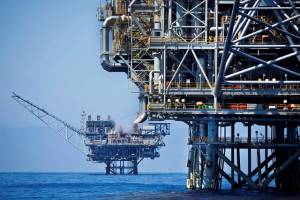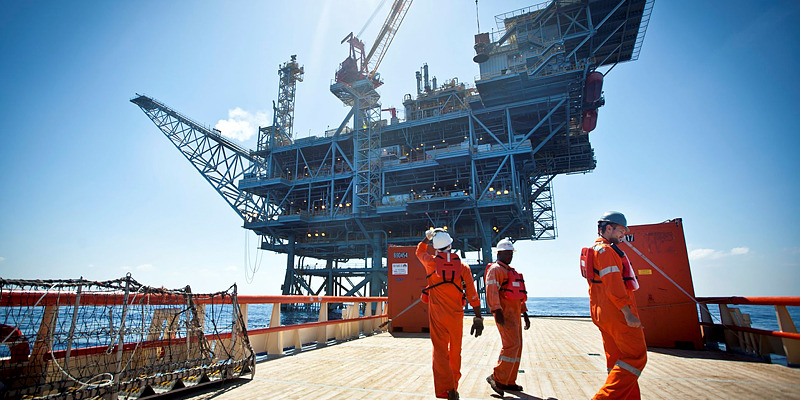
Israel’s Tamar gas field. (Moshe Shai/Flash90)
Economic gains from the Tamar natural gas field canceled out losses from Operation Protective Edge and contributed to a massive increase in the GDP.
Israel’s economic losses from Operation Protective Edge were canceled out by income from the Tamar natural gas field, according to the annual report by the Bank of Israel. The Israeli central bank reported that natural gas added approximately 0.3% to the GDP while the conflict in Gaza cost the same amount.
The Bank of Israel report notes that Israel’s current account surplus had increased from $2.1 billion in 2012 to $6.9 billion in 2013 and $9 billion in 2014, or 3% of GDP. The current account refers to how much a country has earned or lost in economic transactions with other countries, mostly through foreign trade.
According to the Bank, “The improvement in the current account over the past two years is the direct result of the start of gas production from the Tamar field, which reduces the need to import fuel, as well as an improvement in the services account.”
The Tamar natural gas field is not only economically important to Israel, but politically s well. In 2013, the Israeli government decided that the country should export 40% of its gas production and invest the profits in economic development. Last February, US Noble Energy and Israel’s Delek Group, which are cooperating to develop the Tamar and Leviathan fields, signed a partnership agreement worth $1.2 billion with Egypt’s Dolphinus Holdings to export 5 billion cubic meters of gas over five years. Two Jordanian companies, Arab Potash and Jordan Bromine, signed a $500 million agreement to import gas from Israel over the next 15 years.
The report concluded that natural gas was a benefit to the Israeli economy, leading to “very high growth rates when averaged over the long-term.”
By: Sara Abramowicz, United with Israel
